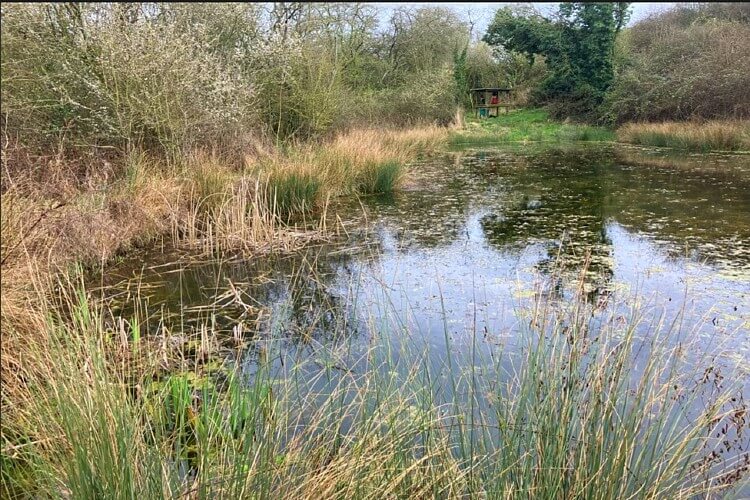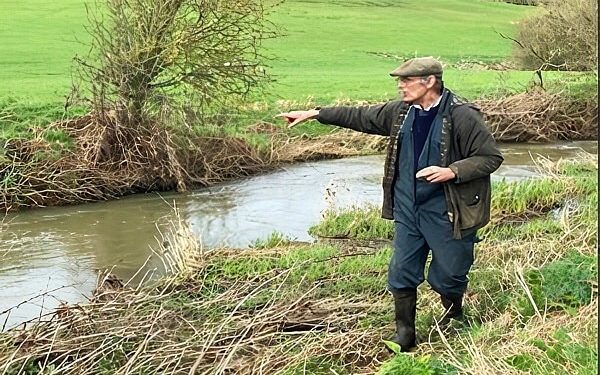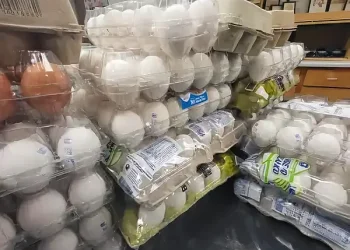Nestled in the picturesque countryside of Buckinghamshire, Rectory Farm stands as a testament to the power of sustainable farming.
George and Ann Eaton have transformed their farm into a vibrant haven for wildlife while maintaining a productive agricultural operation.

A Legacy of Sustainable Practices
Rectory Farm’s journey towards sustainability began decades ago, with the Eatons participating in agri-environment schemes since the 1980s.
These initiatives, designed to promote biodiversity and sustainable land use, have enabled the farm to flourish.
From the outset, George and Ann embraced the challenge of balancing productivity with conservation, setting a standard for environmentally conscious farming in the UK.
The Role of Agri-Environment Schemes
At the heart of Rectory Farm’s success lies the strategic use of agri-environment schemes. These programmes, overseen by Natural England, offer farmers financial incentives to adopt environmentally friendly practices.
The Eatons have leveraged these opportunities to enhance their farm’s ecological value, transforming it into a sanctuary for diverse species.
Andrew Russell, a senior officer at Natural England, highlights the dedication of the Eatons:
“George and Ann go above and beyond, ensuring the habitats created on their farm are managed to the highest quality. Their careful and proactive use of agri-environment schemes over the past few decades has made this farm a model of what can be achieved.”
Some of the Initiatives at Rectory Farm
The Eatons’ commitment to sustainability is evident in several initiatives:
- Species-Rich Grassland: Dedicated areas for species-rich grassland support a diverse range of wildflowers and insects, contributing significantly to the farm’s biodiversity.
- Floristically Enhanced Grass Margins and Nectar Flower Mixes: These areas provide essential resources for pollinators and other beneficial insects, crucial for maintaining a healthy ecosystem.
- Buffer Strips and Wild Bird Seed Crops: These strips offer extensive habitats for wildflowers, insects, mammals, and farmland birds, enhancing the farm’s ecological diversity.
- Wet Grassland Management: This initiative supports habitats for wintering waders and wildfowl, providing crucial refuge during the colder months.
These initiatives have not only boosted the farm’s ecological value but also its resilience and productivity. The presence of a diverse range of species helps create a balanced ecosystem, reducing the need for chemical interventions and promoting natural pest control.
Initiative |
Description |
|---|---|
| Species-Rich Grassland | Dedicated areas for diverse wildflowers and insects. |
| Enhanced Grass Margins & Nectar Mixes | Essential for pollinators and ecosystem health. |
| Buffer Strips & Wild Bird Seed Crops | Habitats for wildflowers, insects, and farmland birds. |
| Wet Grassland Management | Supports wintering waders and wildfowl, crucial for biodiversity. |

A Hub for Education and Awareness
Beyond its ecological contributions, Rectory Farm serves as an educational hub. The Eatons regularly host school visits sponsored by Natural England, providing students with hands-on learning experiences.
These visits aim to foster a deeper understanding of sustainable farming practices and the importance of biodiversity.
George Eaton reflects on their journey:
“Working with Natural England for the past 19 years has been invaluable. Their advice has enabled us to implement diverse habitat management practices, significantly enhancing our farm’s biodiversity and productivity.”
A Sustainable Future
Rectory Farm’s story is a powerful reminder of the potential that lies in sustainable farming. The farm’s success demonstrates that with the right support and commitment, it is possible to achieve both ecological and economic benefits.
The Eatons’ proactive approach and willingness to adapt have not only benefited their farm but also contributed to the broader goals of environmental conservation in the UK.
Food For Thought
Rectory Farm exemplifies how agri-environment schemes can transform a farm into a model of sustainability and biodiversity.
The Eatons’ dedication and innovative use of these programmes have made their farm a beacon of hope for a sustainable future.
Their work not only preserves the beauty and diversity of the British countryside but also sets a benchmark for other farmers to follow.
Sources: THX News & Natural England.









